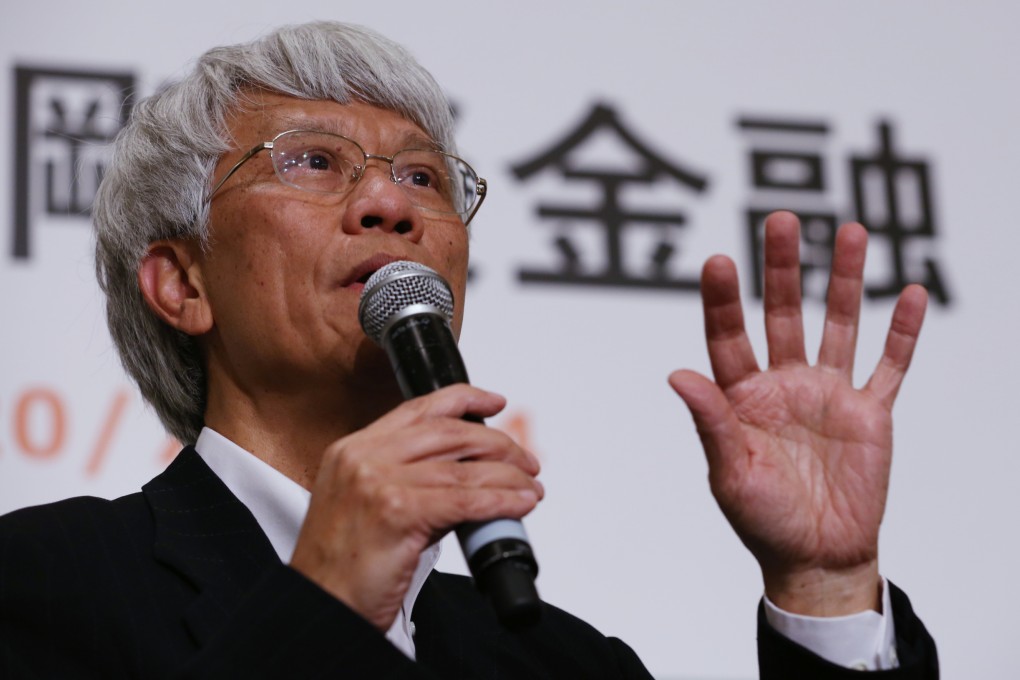Occupy threatens city's growth, warn Norman Chan and Joseph Yam
The head of the Monetary Authority and his predecessor have warned that the Occupy movement is harming Hong Kong's economy and could have a damaging long-term effect on the city's growth.

The head of the Monetary Authority and his predecessor have warned that the Occupy movement is harming Hong Kong's economy and could have a damaging long-term effect on the city's growth.
Joseph Yam Chi-kwong, head of the authority from 1993 to 2009, said the city's prosperity rested on its role as a middleman in the finance industry between the mainland and foreign countries.
"[If] the middleman does not cooperate, is not reliable and is stirring up trouble, the mainland will reduce its reliance [on Hong Kong], reinvent the wheel … and reduce the policy preference towards Hong Kong during the mainland's economic reform," Yam said yesterday.
This would harm the city's job market, currency stability and its healthy fiscal position, he added.
"As it goes on, Hong Kong would not have universal suffrage, no matter if it is a real one, sham one, ideal one, realistic one or pragmatic one," he said.
Yam also urged those supporting the movement to consider what would be in the best interest of younger generations in the long run.